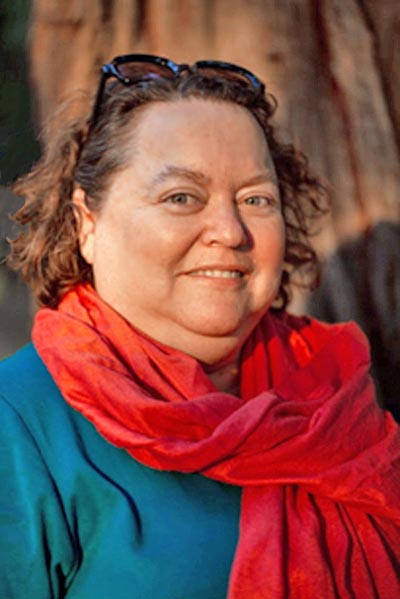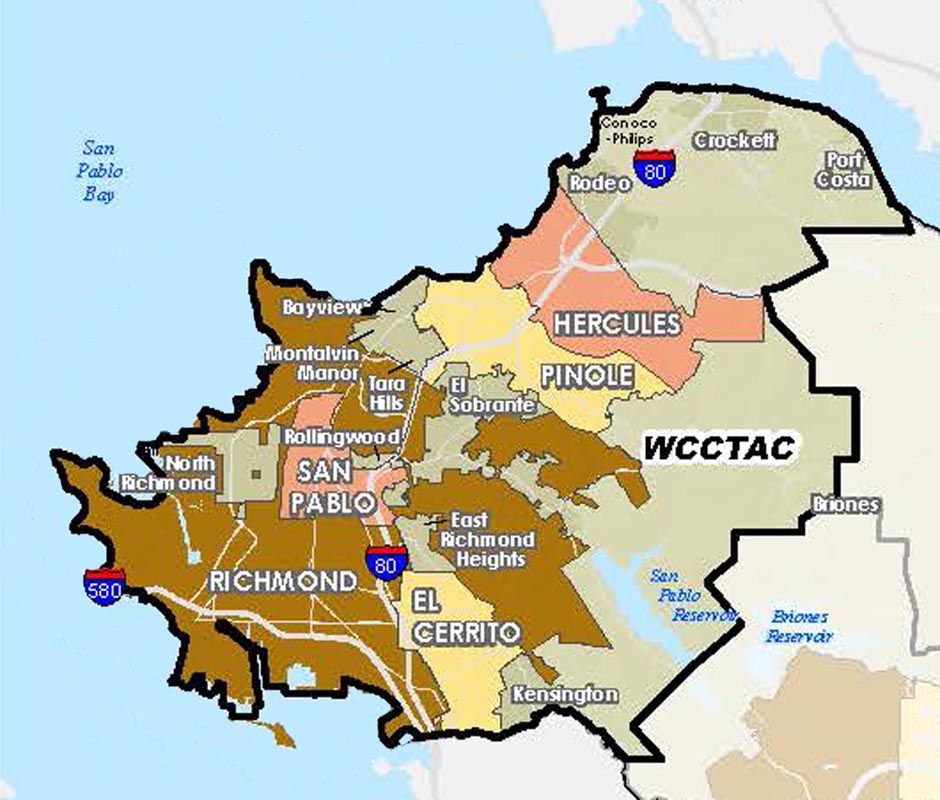By Catarina Kidd, AICP

Leah Greenblat is Transportation Project Manager at West Contra Costa Transportation Advisory Committee. She serves on the Board of Directors of the Jewish Community Center of the East Bay. Greenblat and her team won the 2018 APA California Award of Excellence for their work on the West Contra Costa High-Capacity Transit Study.
Where did you go to college?
My undergraduate degree was in landscape architecture, with a minor in planning at UC Berkeley. My master’s degree is in urban and transportation planning from the University of Washington, Seattle. During graduate school I also studied at the University of Groningen in the Netherlands.
Tell us about your path to transportation planning?
I don’t think I’d heard of transportation planning until I was an undergraduate. I grew up in a town that had no traffic signals. They were talking about putting one in. I was interested in how it would change how people traveled through the area and how people experienced the place. In my landscape architecture program, we talked a lot about the design of public space, but most of that wasn’t dealing with city rights-of-way. It was a shift from plazas and parks to how you design roadways.
Tell us about your current role.
For almost five years, I have been working for West Contra Costa Transportation Advisory Committee (WCCTAC), one of four regional transportation advisory committees in Contra Costa County. We are a Joint Powers Authority that works on behalf of our five west county cities plus the county and three transit providers.  We provide a forum to plan and coordinate transportation issues within the subregion. West Contra Costa is different from the rest of the county, and WCCTAC represents the transportation planning interests of our member agencies in regional transportation settings.
We provide a forum to plan and coordinate transportation issues within the subregion. West Contra Costa is different from the rest of the county, and WCCTAC represents the transportation planning interests of our member agencies in regional transportation settings.
What are some examples of those planning interests?
The West Contra Costa High-Capacity Transit study found an unmet market for express bus service between West County and Northern Alameda County. The transit for commuters in the area has historically been focused on getting people to San Francisco. We now see a high percentage of West County residents employed in Northern Alameda County. I-80 is the most congested freeway, so people are trying to find ways to get to work other than driving. We are working with local jurisdictions to plan for future express bus service. Due to our earlier study, we were able to get funding for new express bus service in Regional Measure 3, and now we’re looking for additional sources for operations and capital. It takes a lot of money to run high frequency service.
What is challenging about WCCTAC’s role and how do you overcome those challenges?
For the express bus project, the challenges are in public outreach. It’s hard to find potential users of the service because they are not currently using such a service: it doesn’t exist. Right now, if you lived in Pinole and you want to take transit in the morning to Emeryville, it’s what we call a “three-seat ride”: one bus to BART, BART to Oakland, then Emery Go-Round, a fare-free public bus system in Emeryville. That’s not very attractive. It costs a lot and takes longer to get there.
In attempting to reach the right members of the public to get their input, we’ve tried to be creative and flexible. Our consultant has walked the streets of some cities where there are large employers to connect and find out where people want routes. They’ve even hung out at popular lunch spots to talk to potential riders.
With respect to our member agencies, the challenge is we’re not their highest priority. Local staff are busy responding to residents and juggling multiple tasks. I try to make things as easy as possible for our member agencies to respond and participate. I don’t want to overwhelm local staff, but it’s important they get the information.
Any successes?
Yes. We recently held a focus group with employees at Pixar in Emeryville — that was fun visiting their campus. We met with 10 or so employees to hear about what they would need. We’re finding that interest in the new express bus service is almost universally positively received. The past focus was getting people to San Francisco and Downtown Oakland to some extent, but not West Berkeley or Emeryville. Major employment centers developed within the last two decades have not been sufficiently served by transit. We want to find a solution to that.
Whom do you really admire, whose example or advice has helped you develop professionally?
Kirk McKinley comes to mind. He was the first transportation planner I knew. He hired me when I was in grad school as an intern for the City of Bellevue, Washington. He was just a great combination of expertise and humor. He understood the politics and was a creative thinker. I try to emulate his style — being honest and trustworthy with the public. It is one of my strengths: I am straightforward with the public. The need to build trust with the community is so important.
Tell us about a favorite project.
Traffic calming in Lafayette on Stanley Boulevard — a street that never had sidewalks. After that project was done, one of the neighborhood residents told me that, for the first time ever, kids were trick or treating on Halloween. That made my day!
Planners work in a political environment. How would you advise planners who are facing the challenges of that dynamic?
Recognize that there is a process and know what your role is. With local-decision making, there is a need for engaging members of the public. There are always multiple opinions and points of view. Our professional advice may be informed from one perspective and backed up by facts and data. That doesn’t mean there aren’t multiple perspectives that are legitimate. There are many smart, caring people out there. Planners working at the local level can play an important role in helping to work through the options. You can find real, meaningful value in working in the public realm.
 Interviewer Catarina Kidd, AICP, has been Northern News’ associate editor since 2015. Although she is stepping away from her editorial position, she will continue her work on “Meet a local planner.” All interviews are edited.
Interviewer Catarina Kidd, AICP, has been Northern News’ associate editor since 2015. Although she is stepping away from her editorial position, she will continue her work on “Meet a local planner.” All interviews are edited.

